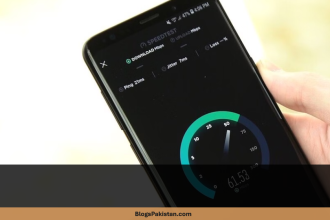In a groundbreaking move that aligns with Pakistan’s vision for a digital future, Huawei Pakistan, in partnership with the Ministry of Federal Education & Professional Training (MoFE&PT), has officially launched an expansive Information and Communication Technology (ICT) training initiative. This effort targets students from Grades 6 to 10 in Islamabad Model Schools and Colleges, with future plans to extend its reach to Gilgit-Baltistan and Azad Jammu and Kashmir.
The program, driven by the Prime Minister’s national digital transformation campaign, aims to train more than 300,000 students in modern ICT disciplines. From artificial intelligence to cybersecurity, the course offerings are designed to empower the next generation with the skills they need to thrive in a technology-driven world.
Understanding the Vision Behind the ICT Initiative
A Nation’s Commitment to Digital Literacy
The global digital revolution has made ICT education essential rather than optional. Recognizing this, Pakistan has taken a proactive step in ensuring its youth are equipped with core digital competencies. With Huawei as a strategic technology partner, this initiative is not just about learning computers—it’s about creating future-ready talent capable of contributing to the national and global digital economy.
The Federal Directorate of Education’s Role
Tasked with overseeing the implementation, the Federal Directorate of Education (FDE) has issued directives for all institutional heads to ensure 100% registration of students by May 27, reinforcing the seriousness of the campaign.
Key Features of Huawei’s ICT Program
H2: A Curriculum Rooted in Emerging Technologies
This isn’t a standard computer course. The curriculum is specifically designed to expose students to cutting-edge technologies that are shaping the future. Some of the modules include:
- AI Basics: A mandatory one-hour foundational course
- 5G Technology: Understanding next-gen connectivity
- Internet of Things (IoT): Smart systems and automation
- Cloud Computing: Managing data in a decentralized environment
- Data Analysis: Drawing insights from complex datasets
- Cybersecurity and Network Protection: Staying safe in a digital world
H3: Train the Trainer Component
Teachers and school staff are also being trained to deliver and facilitate ICT courses effectively. This ensures that the program is sustainable, scalable, and deeply embedded into the academic ecosystem.
H3: Student Certification
Students who complete each module will receive official Huawei-certified course completion certificates, bolstering their resumes and giving them a significant advantage in future academic and professional opportunities.
The Power of Early Digital Exposure
H2: Why Start with Students in Grades 6 to 10?
Introducing ICT training at an early age fosters digital literacy, problem-solving, and computational thinking—skills that are increasingly essential across all careers. By targeting students in middle and secondary school, the initiative ensures that youth are exposed to practical and theoretical concepts before they enter universities or the workforce.
H3: Encouraging Equal Opportunities
A standout aspect of this program is its inclusiveness. By targeting schools in Islamabad, Gilgit-Baltistan, and AJK, it actively promotes educational equity and ensures students from underrepresented regions have equal access to world-class digital education.
Registration Made Simple: Huawei Talent Platform
H2: How Students Can Register
Students must register through the Huawei Talent Platform, which is acting as the central hub for course access, tracking progress, and issuing certifications.
Key Registration Requirements:
- A unique email ID
- A unique phone number
- Enrollment under a verified Islamabad Model School or affiliated institution
The simplicity and accessibility of this process demonstrate Huawei’s commitment to streamlining the learning experience and minimizing barriers.
A Leap Toward Pakistan’s Digital Future
H2: Bridging the Skills Gap
Pakistan’s digital economy is growing—but so is the demand for skilled workers. This ICT program directly addresses this gap by creating a pipeline of tech-savvy students who will be prepared to take on roles in:
- Software Development
- Data Science
- Artificial Intelligence
- Telecommunications
- Cybersecurity
H3: National Digital Transformation Campaign
This program is part of the larger Digital Pakistan Vision, a governmental initiative focused on improving connectivity, e-governance, digital infrastructure, and citizen empowerment. With Huawei’s technological leadership, Pakistan is now better positioned to compete in the global digital arena.
What’s Next for ICT in Pakistan?
H2: Long-Term Goals and Expansion
This program is only the beginning. Plans are already underway to extend ICT courses to:
- Higher secondary schools
- Vocational and technical institutes
- Teacher training universities
The ultimate goal is to establish a lifelong digital learning ecosystem that evolves with technological advancements and workforce needs.
Conclusion: A Digital Investment in the Next Generation
Huawei’s ICT course rollout marks a major milestone in Pakistan’s journey toward becoming a knowledge-based economy. It represents a strategic investment in human capital—an investment that will pay dividends in innovation, employment, and national growth.
As the first cohorts complete their AI Basics modules and progress through more complex topics, we are witnessing the foundation of a digitally empowered youth. With the full support of MoFE&PT, FDE, and global tech partners like Huawei, the future of Pakistan’s ICT sector is brighter than ever.
Ready to learn more or enroll your institution in this initiative? Visit the official Huawei Talent Platform today and become part of Pakistan’s digital revolution.
If you’re a student or educator and need guidance navigating the platform or selecting ICT modules, feel free to reach out. Your digital future starts now.










